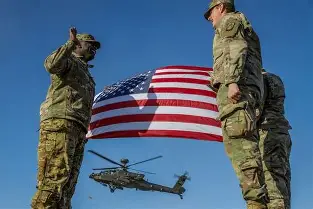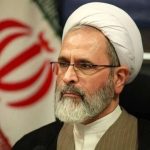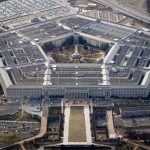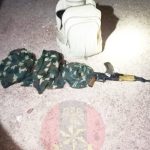By Anamati Inyang | November 6, 2025
The United States military has reportedly developed a range of contingency plans for potential action in Nigeria, following a directive from President Donald Trump to prepare for what he described as a response to the “mass slaughter of Christians” under the administration of President Bola Tinubu.
According to a report published by The New York Times on Wednesday, the US Africa Command (AFRICOM) has submitted a detailed plan to the Department of War, outlining three possible levels of intervention — heavy, medium, and light options — designed to allow for controlled escalation depending on the scope of engagement.
Inside the Contingency Plans
Sources told The New York Times that the heavy option represents the most forceful response, involving the deployment of an aircraft carrier group to the Gulf of Guinea and the use of fighter jets or long-range bombers to strike targets deep inside northern Nigeria.
The medium option, the report said, proposes the use of drone strikes against militant camps, convoys, and other identified targets across northern Nigeria. Predator and Reaper drones, capable of loitering for hours, would conduct surveillance before carrying out precision strikes.
The light option would focus on partner-enabled operations, allowing the US military to work alongside Nigerian security forces and provide intelligence, logistical, and technical support to target insurgent groups such as Boko Haram and ISWAP.
Military officials reportedly said the main objective of these plans is to “protect Christians from armed violence” and end the long-running insurgency in Nigeria’s northern region.
Trump’s Threats and Sanctions
The development follows President Trump’s recent comments accusing the Tinubu administration of “allowing mass killings of Christians” in Nigeria. Last week, the former US president declared Nigeria a Country of Particular Concern (CPC) and suspended arms sales and technical support to the country.
“Christianity is facing an existential threat in Nigeria,” Trump said. “The United States cannot stand by while such atrocities are happening. We are ready, willing, and able to save our great Christian population around the world.”
His remarks came after months of lobbying by right-wing US lawmakers, who urged the White House to sanction Nigeria for alleged religious persecution, claims that the Nigerian government has strongly denied.
Complex Realities on Ground
While the US military reviews its options, analysts and officials have warned that the conflict dynamics in Nigeria and the wider Sahel region are complex and deeply rooted in socio-economic, ethnic, and religious factors.
Security experts told The New York Times that violence in Nigeria’s Middle Belt, for instance, often stems from land disputes, while jihadist attacks in the North have targeted both Muslims and Christians alike.
Groups such as Boko Haram and ISWAP have carried out mass abductions, raids, and bombings across northern states, without discrimination. In 2017, over 50 worshippers were killed when a bomb exploded inside a mosque in Mubi, Adamawa State. A year later, twin suicide bombings in another mosque in the same region claimed 86 lives.
Paul Eaton, a retired US Army general and Iraq war veteran, warned that a large-scale US military intervention would be counterproductive. “It would be a fiasco,” he said, likening the plan to “pounding a pillow,” creating chaos rather than resolving the conflict.
Challenges with the Proposed Options
The New York Times report also revealed logistical and operational hurdles tied to each of the proposed strategies.
The heavy option would require deploying an aircraft carrier group to the Gulf of Guinea, but the US currently faces limited carrier availability. One of its primary vessels, the USS Gerald R. Ford, is being redeployed from Europe to the Caribbean for anti-narcotics operations, while others are stationed in the Pacific and the Middle East or undergoing maintenance.
Similarly, the medium option is constrained by the absence of nearby US drone bases. Washington reportedly withdrew from its drone bases in Agadez and Niamey, Niger, in August, following a breakdown in relations with the country’s military junta.
Several US officials told The New York Times that deploying major assets to Nigeria is not viewed as a top national security priority at the moment, despite mounting political pressure from within the United States.
A Delicate Situation
As debates continue in Washington, concerns are growing about the potential consequences of any military action in Nigeria. Analysts warn that an aggressive approach could inflame tensions, destabilize the region further, and complicate relations between the two countries.
While the US government insists that its priority is to “protect vulnerable communities,” many observers believe that any intervention must be guided by diplomacy, regional collaboration, and a deeper understanding of Nigeria’s complex internal challenges.
For now, the world watches as the US weighs its next move, and as Nigeria braces for what could become one of the most consequential international developments in its recent history.
RISMADAR Voice Media brings clarity to global issues that shape our nation.










